
The Plant That Closes Its Leaves When You Touch It – And May Support Your Health Naturally
Have you ever touched a plant and watched its leaves shyly fold up as if reacting to your presence? Meet Mimosa pudica, affectionately known as the “sensitive plant.” This tropical herb isn’t just a botanical curiosity—it’s also earning recognition in the wellness world for its wide-ranging health benefits. From supporting gut health to improving skin clarity and even promoting relaxation, this ancient remedy is gaining popularity among Americans who are turning to nature for gentle healing.
In this guide, we’ll explore the science-backed potential of Mimosa pudica, explain how to use it safely, and share tips to help you integrate it into your wellness routine.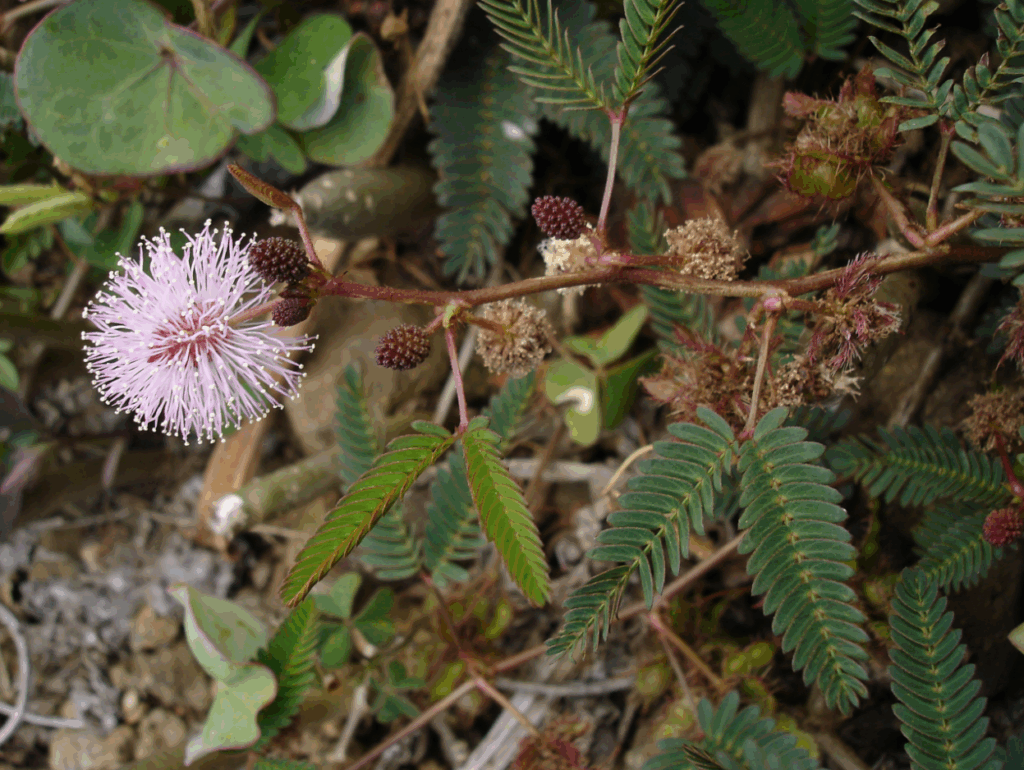
What Exactly Is Mimosa Pudica?
Mimosa pudica is a small, low-growing plant native to South America and parts of Asia. Its most captivating feature? The fern-like leaves close instantly when touched—a natural defense mechanism thought to ward off predators. But beyond its interactive appeal, Mimosa pudica has a long history in traditional medicine, especially in Ayurveda, where it’s used to address a wide variety of health concerns.
Modern studies, including those published in the Journal of Ethnopharmacology, show that the plant contains valuable compounds like alkaloids, tannins, and flavonoids—all of which contribute to its antioxidant, antimicrobial, and anti-inflammatory properties. As consumers look for gentle, plant-based remedies, Mimosa pudica is standing out as a compelling option.
Why Mimosa Pudica Is Gaining Attention
Here’s why this sensitive plant is taking root in the wellness world:
-
Viral-worthy appeal: Videos of its touch-sensitive movement are racking up views on platforms like Instagram, Facebook, and TikTok.
-
Natural and holistic: It fits into the growing demand for non-synthetic, eco-friendly health solutions.
-
Flexible usage: Whether taken as tea, in capsules, or applied as a skin paste, it’s easy to work into your daily regimen.
Potential Health Benefits of Mimosa Pudica

Although more research is needed, traditional medicine and early scientific studies point to several promising health benefits. Here’s what the latest findings and expert opinions suggest:
🌿 1. Supports Digestive Health
Digestive discomfort is a common issue in modern life. Mimosa pudica’s bioactive compounds may help:
-
Ease bloating: By helping to regulate gut bacteria and reduce gas buildup.
-
Promote regular bowel movements: Thanks to its mild laxative effects.
-
Protect the gut lining: Its anti-inflammatory traits may help soothe irritated digestive tissues and support intestinal health.
Bonus: Some health experts now recommend Mimosa pudica as part of parasite cleanse protocols, due to its unique ability to form a sticky gel in the intestines that may trap unwanted organisms.
🌿 2. Promotes Clearer, Healthier Skin
Mimosa pudica has been traditionally applied to the skin for centuries, and for good reason:
-
Reduces redness and irritation: Helpful in calming minor rashes or itching.
-
Fights bacteria: The plant's antimicrobial components can help keep pores clean.
-
Aids wound recovery: Ethnobotanical records show its use in healing small cuts and abrasions.
🌿 3. Fights Inflammation
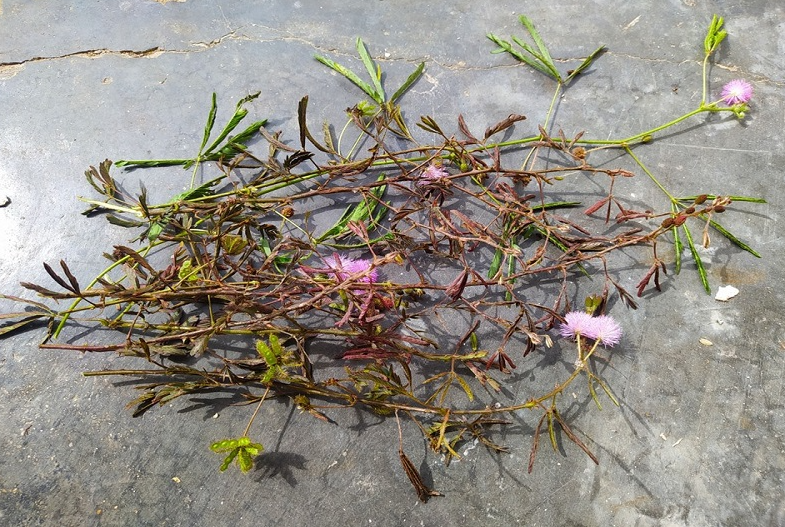
Chronic inflammation is a root cause of many health conditions, including arthritis, fatigue, and cardiovascular disease. Mimosa pudica may help:
-
Ease joint discomfort: Preliminary animal studies suggest it may reduce joint swelling.
-
Support whole-body wellness: By reducing inflammation, it may boost energy and comfort levels.
🌿 4. May Promote Emotional Balance
Stress and sleeplessness are growing concerns in the U.S. Some traditional uses and early research indicate Mimosa pudica may:
-
Promote relaxation: Compounds like mimosine may have calming effects.
-
Improve sleep: Anecdotal evidence suggests it may help those with occasional insomnia or restless nights.
Important Note: These effects are not yet proven in large-scale clinical studies. Always talk to a healthcare provider before using it for mental health support.
How to Safely Use Mimosa Pudica
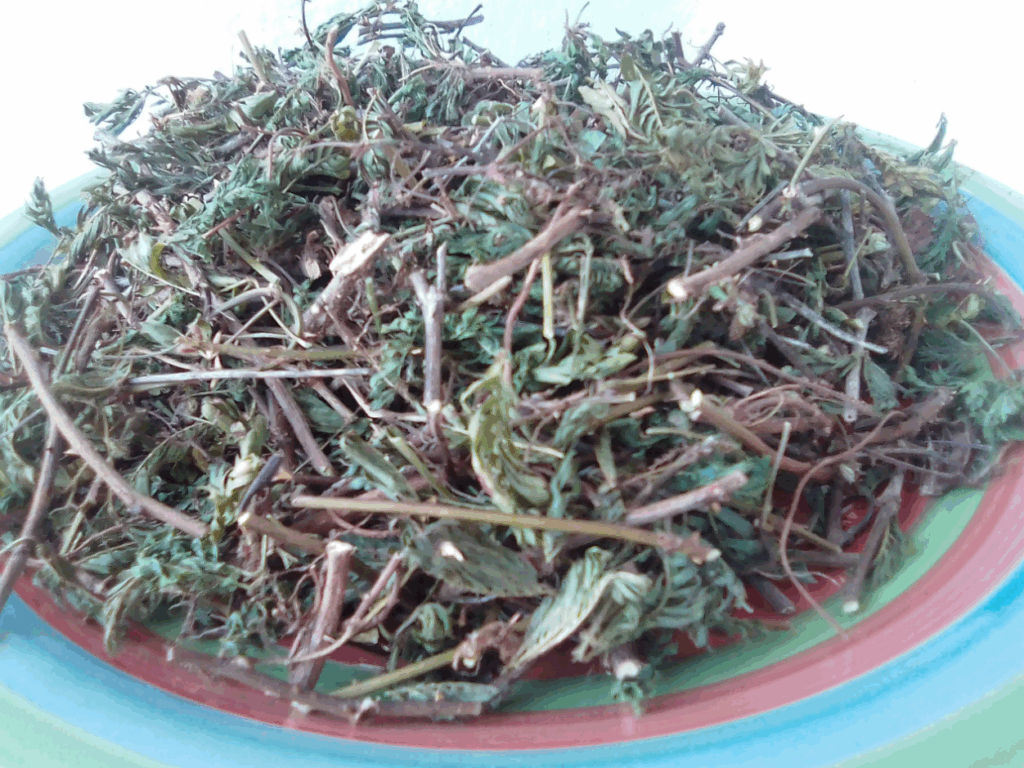
Whether you’re sipping it in tea or taking capsules, safety comes first. Like any herbal supplement, Mimosa pudica can interact with medications or trigger side effects in some individuals.
🌱 Common Forms and How to Use Them
-
Tea: Steep 1 teaspoon of dried Mimosa pudica leaves or powder in hot water for 5–10 minutes. Drink once daily.
-
Capsules: Typically 1–2 capsules per day, taken with meals. Follow label directions.
-
Topical paste: Mix Mimosa pudica powder with water or aloe vera to form a smooth paste. Apply to clean skin for 10 minutes, then rinse off.
🍵 Step-by-Step Guide to Making Mimosa Pudica Tea
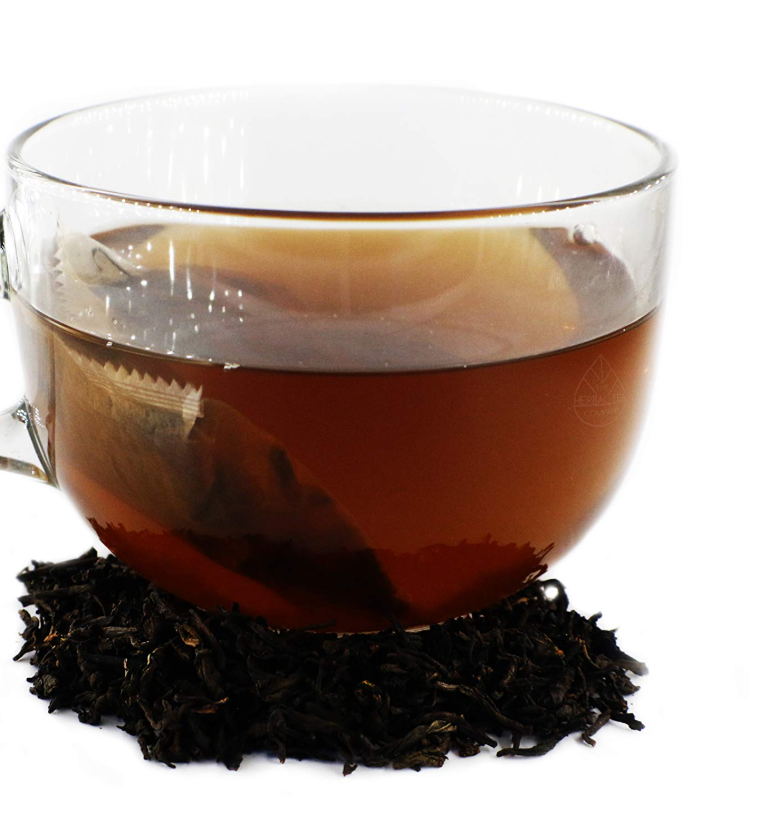
-
Boil water: Heat 1 cup of filtered water to just below boiling.
-
Steep the plant: Add 1 teaspoon of dried Mimosa pudica leaves or powder.
-
Let sit: Allow it to steep for 5–10 minutes.
-
Strain: Use a fine mesh strainer or cheesecloth to remove solids.
-
Enjoy slowly: Sip warm, ideally in the morning or after meals.
Pro Tip: Add lemon or raw honey to enhance flavor without compromising its gut-friendly nature.
Precautions and Who Should Avoid Mimosa Pudica
Mimosa pudica is generally well-tolerated, but it's not suitable for everyone.
🚫 Avoid or Use with Caution If You:
-
Are pregnant or breastfeeding
-
Have known plant allergies, especially to legumes
-
Are on sedatives or sleep medications
-
Are elderly and on multiple prescriptions (due to drug interaction risks)
⚠️ Watch for Possible Side Effects:
-
Nausea
-
Dizziness
-
Skin irritation (from topical use)
Always patch-test topical applications and begin with small oral doses. Consult a healthcare provider before starting any new herbal remedy.
Pairing Mimosa Pudica with a Holistic Lifestyle
Mimosa pudica works best when paired with healthy habits. Here’s how to enhance its effects:
-
Eat a fiber-rich, anti-inflammatory diet with fruits, vegetables, and whole grains
-
Stay hydrated with at least 8–10 cups of water daily
-
Exercise regularly, aiming for 30 minutes a day
-
Get quality sleep (7–9 hours per night)
-
Practice stress management, such as breathwork, journaling, or meditation
Why People Are Turning to Mimosa Pudica
The rise in Mimosa pudica’s popularity mirrors a larger wellness trend: choosing nature-based, low-risk remedies over synthetic alternatives. According to a 2024 survey by the National Center for Complementary and Integrative Health, nearly 4 in 10 Americans are using herbal supplements. Social media only amplifies this trend, with influencers and health-conscious communities sharing their personal experiences and tips.
However, experts from the American Botanical Council urge caution: herbal supplements should complement—not replace—medical advice or treatment.
Final Thoughts: Is Mimosa Pudica Right for You?
Mimosa pudica isn’t just a quirky plant that responds to touch—it’s a potential powerhouse in the world of natural wellness. Whether you’re looking to soothe your stomach, clear up your skin, or simply explore new herbal options, this plant offers multiple benefits worth considering.
When used thoughtfully and in combination with a healthy lifestyle, Mimosa pudica can be a gentle yet effective addition to your daily self-care routine.
✅ Call to Action:
Have you ever tried Mimosa pudica—or are you thinking about it now? Share your experience or questions in the comments. Let’s grow this conversation about natural wellness together!
Disclaimer: This article is intended for informational purposes only. It is not a substitute for professional medical advice, diagnosis, or treatment. Always speak to your healthcare provider before making changes to your wellness routine.
News in the same category


Golden Energy: How Turmeric, Black Pepper, and Almond Milk Support a Healthier You

Eat These 9 Fruits Daily to Brighten Your Vision & Prevent Cataracts Naturally (Science-Backed)

Garlic: The Tiny Clove with Mighty Wellness Powers You Need to Know

Discover the Magic of Guava Leaf Tea: Your Secret to Vibrant Health

You Cannot HEAL Your KIDNEYS If You Don’t EAT These 15 Fruits!

Most People Ignore Aloe Vera—Until They Face One of These 16 Problems

🥕 Feeling Heavy, Bloated, and Tired? Try This Simple Morning Drink to Feel Lighter and Energized

Baking Soda and Lemon: 8 Potential Health Benefits for Women to Explore
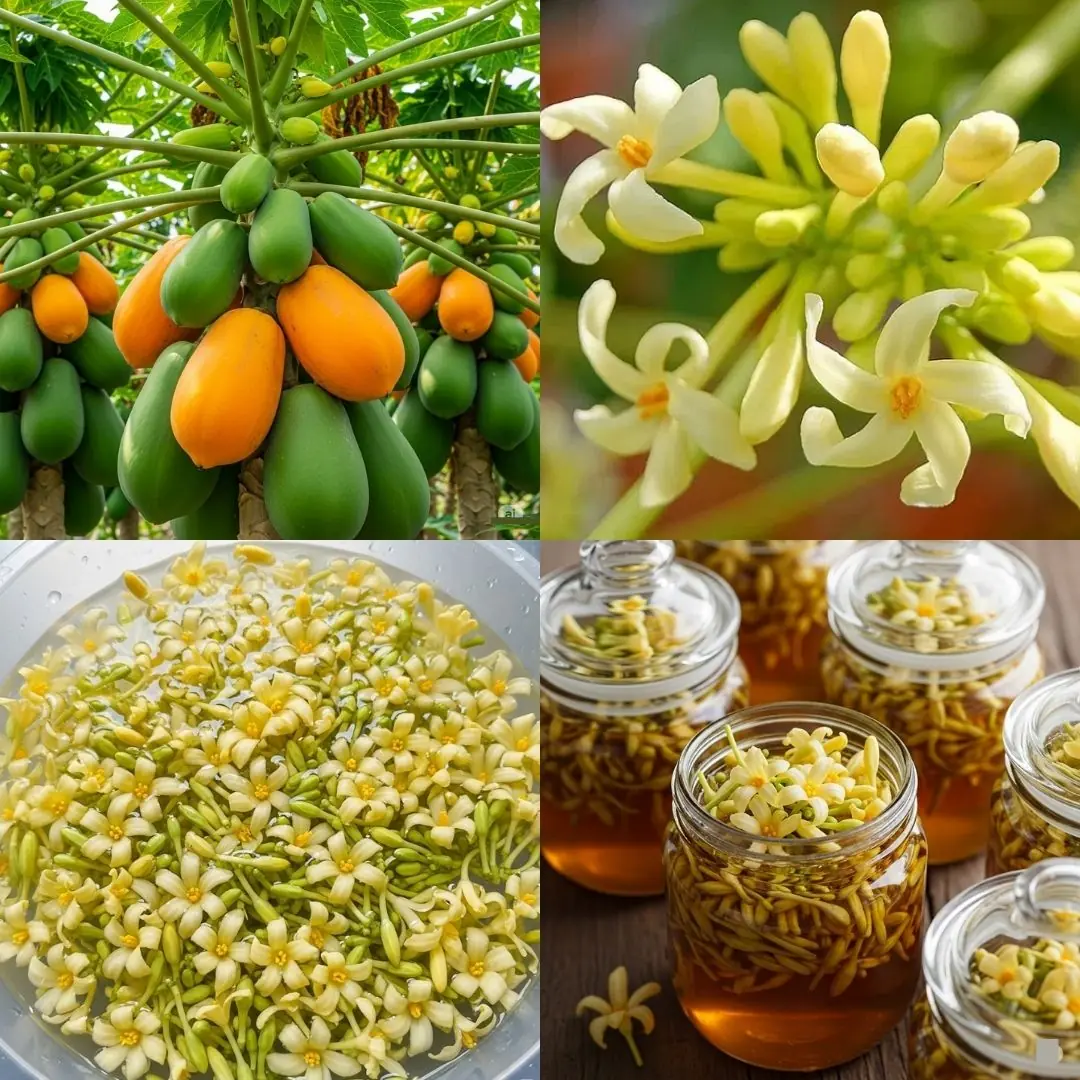
12 Amazing Health Benefits of Papaya Flowers: A Jar of Papaya Flowers in Honey Can Help Your Whole Family Anytime

10 ALARMING Signs of Chronic Kidney Disease (Are You at Risk?)
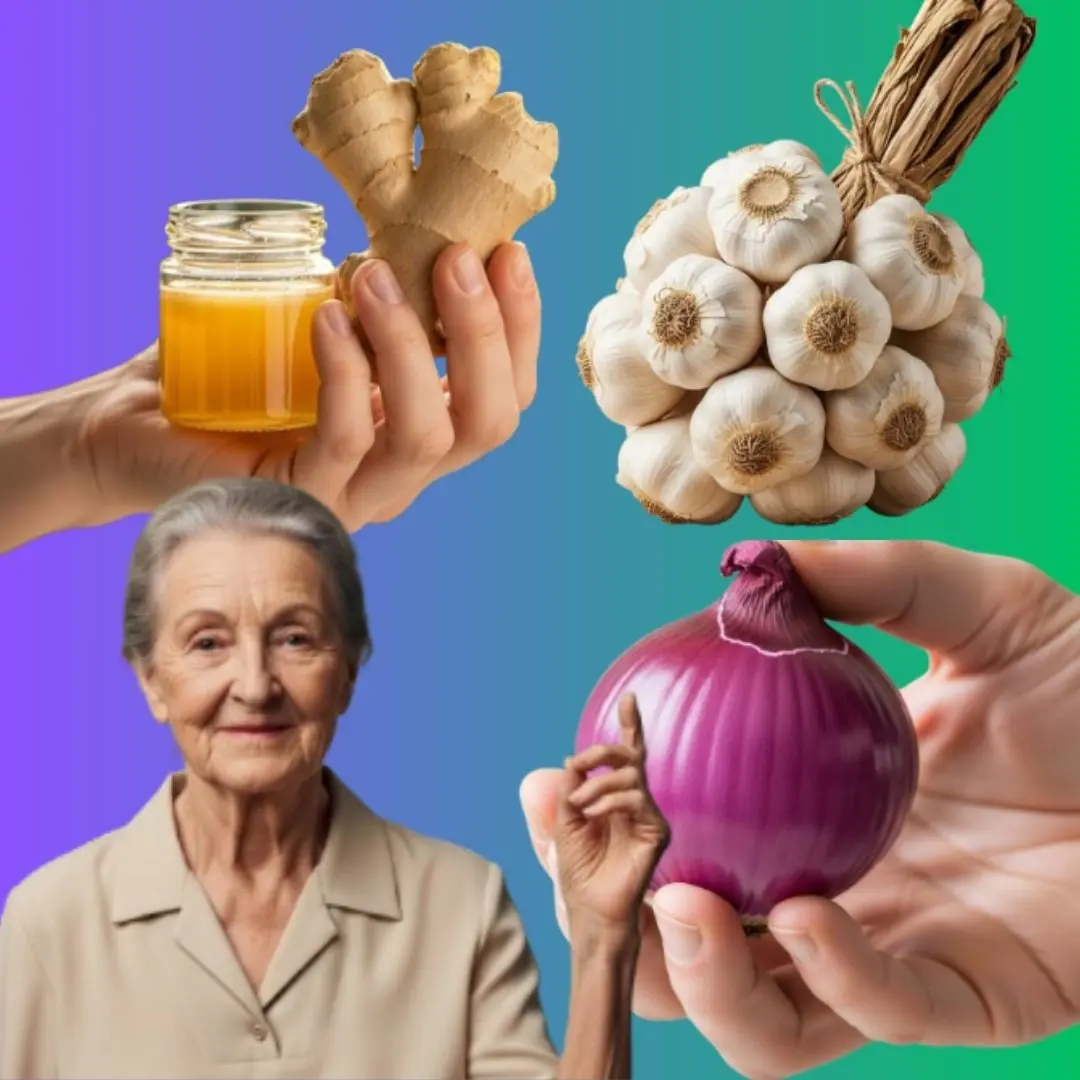
35 Years Without Illness: My Natural Formula for Clear Eyes, Sharp Mind, and Stable Blood Pressure
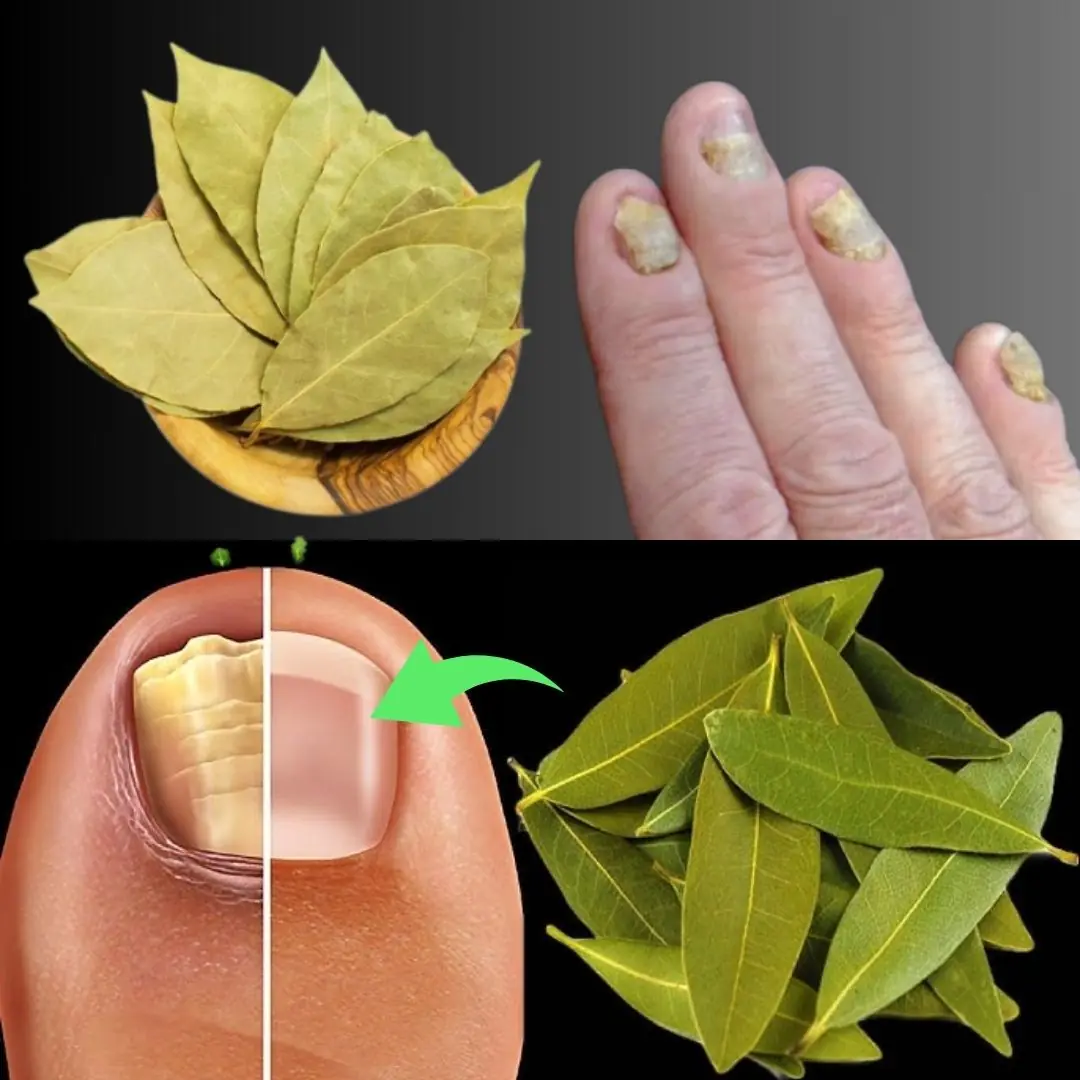
Say Goodbye to Nail Fungus for Less Than $0.50! A Simple Bay Leaf Remedy That Works

Nature’s Overlooked Healer: Astonishing Benefits of Goosegrass You Need to Know

From Bedbound to Bounding: Unleash the Power of a Ginger, Lemon, and Carrot Detox
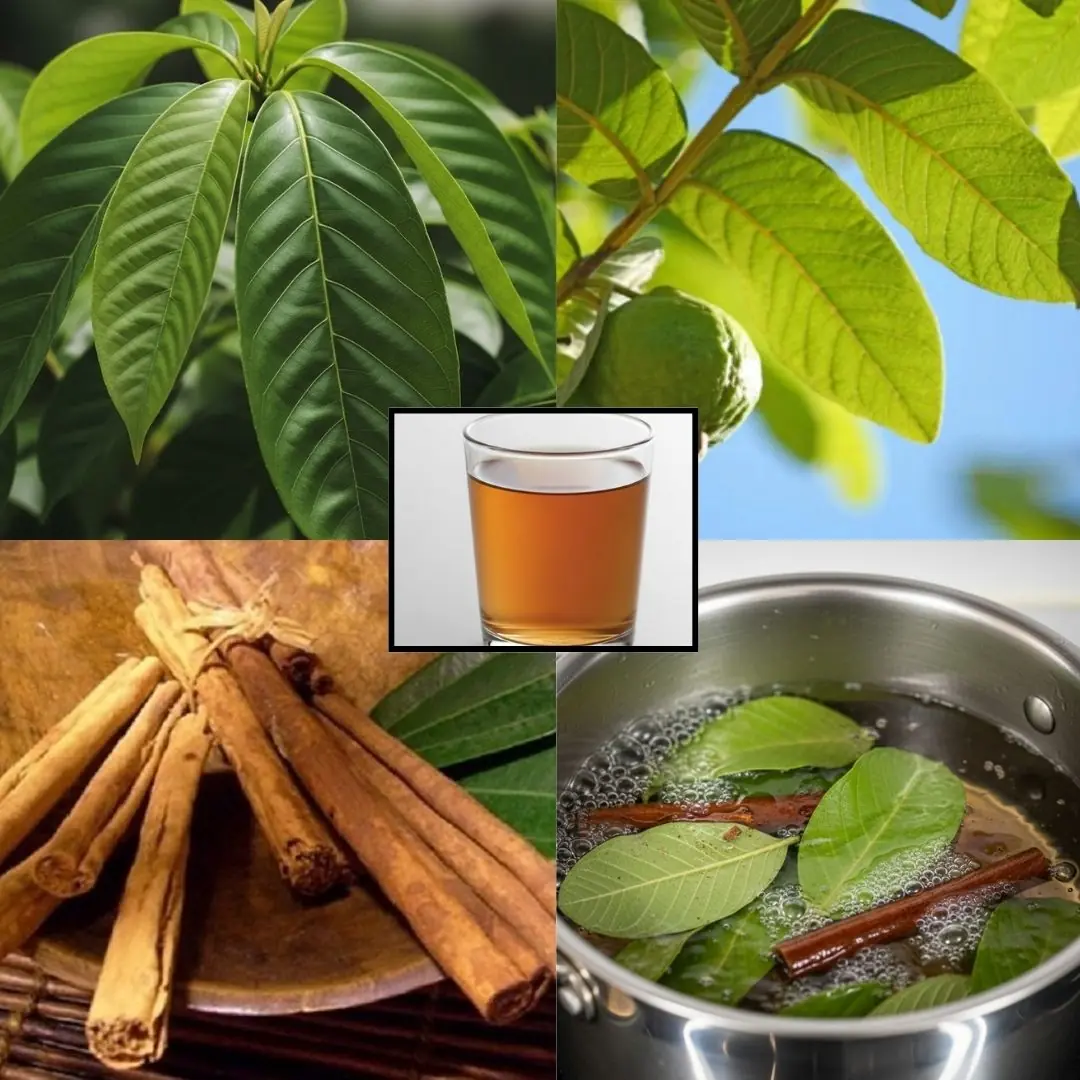
This Natural Drink From Dr. Frank Suárez May Eliminate Diabetes, Poor Circulation, Fatty Liver, Joint Pain, Stomach Issues, and Even Cancer — All Without Medication
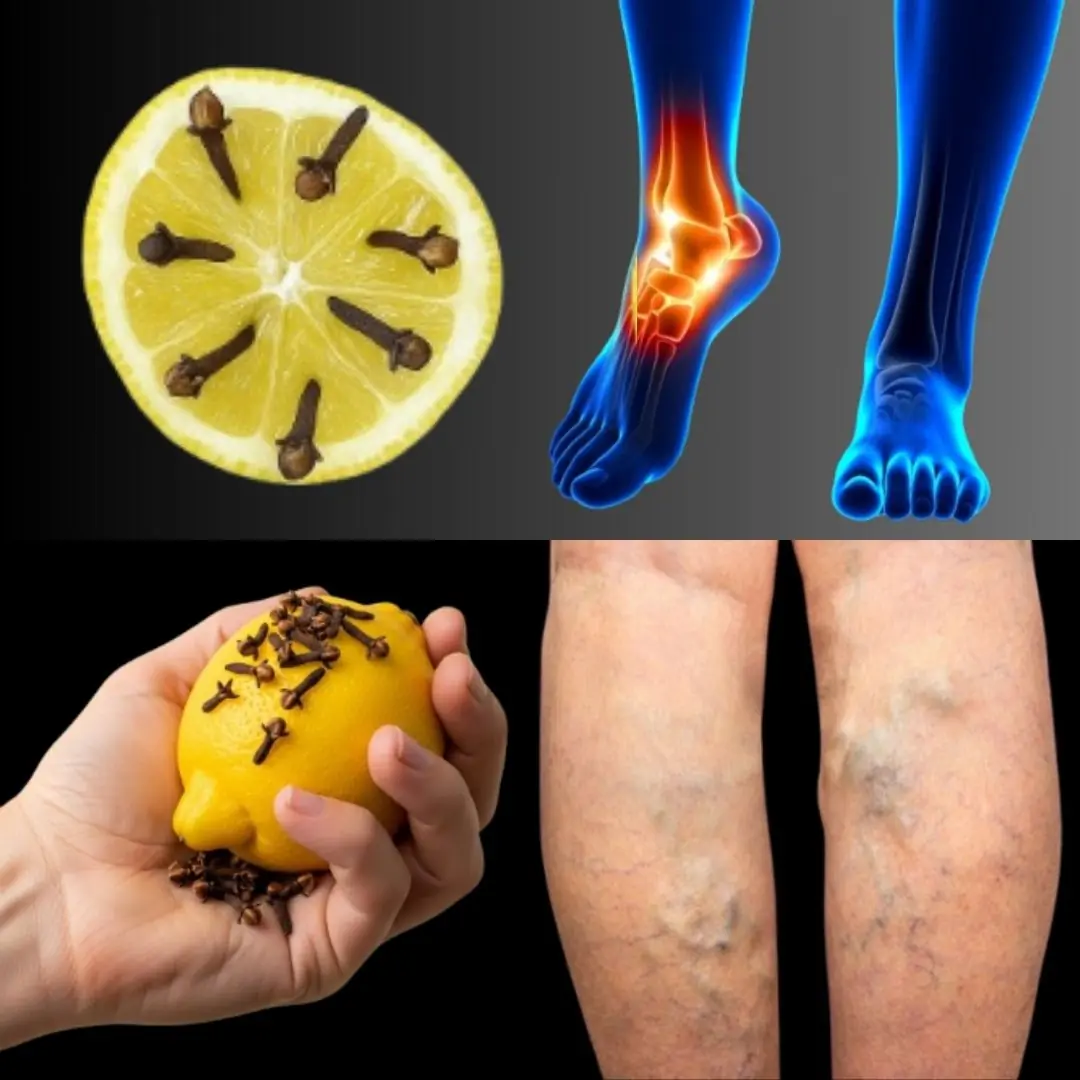
Mom’s Natural Remedy with Lemon: A Modern Cure-All for Pain and Inflammation 🍋🌿
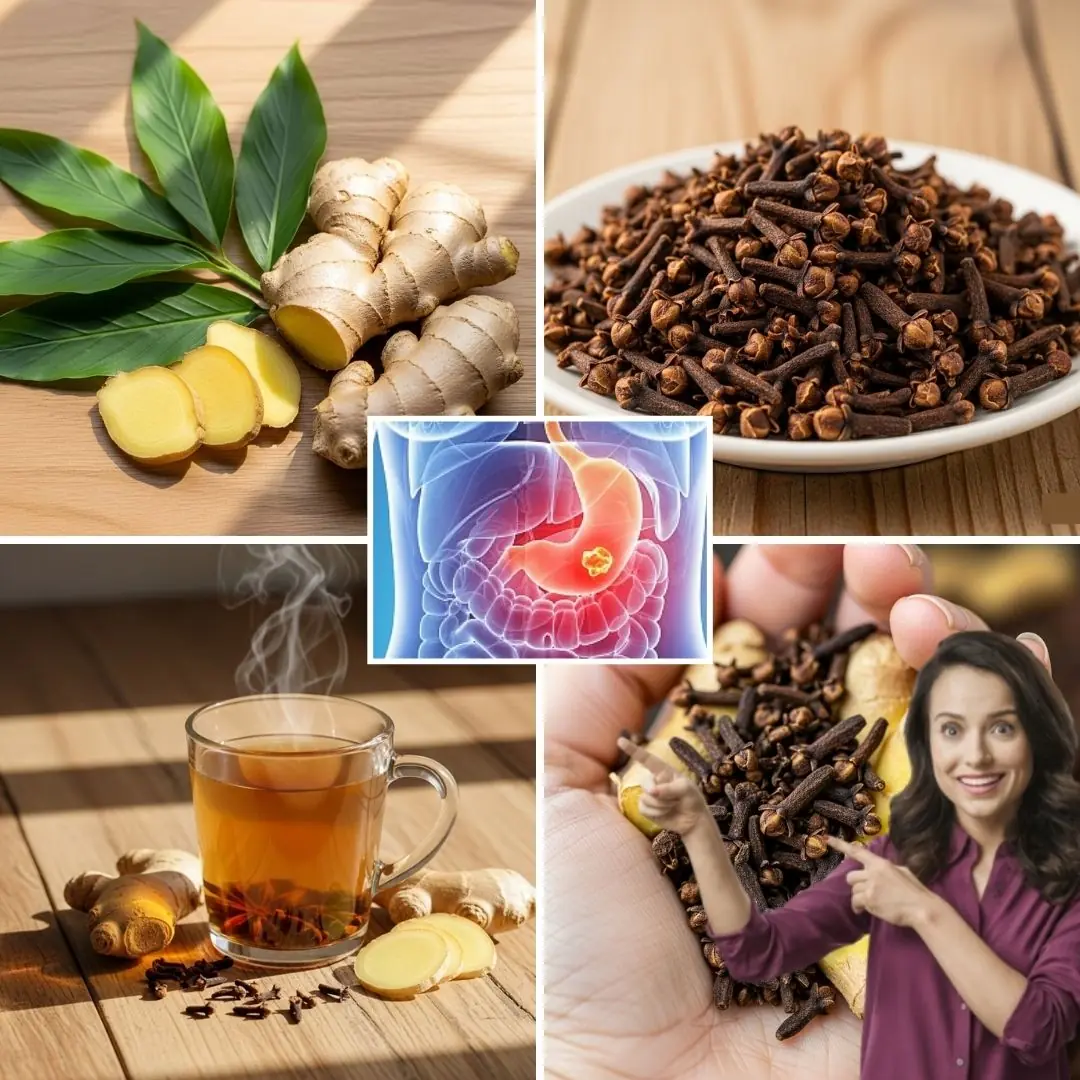
Unlock the Secret Elixir: Why Ginger, Cloves, and Lipton Tea Could Transform Your Health
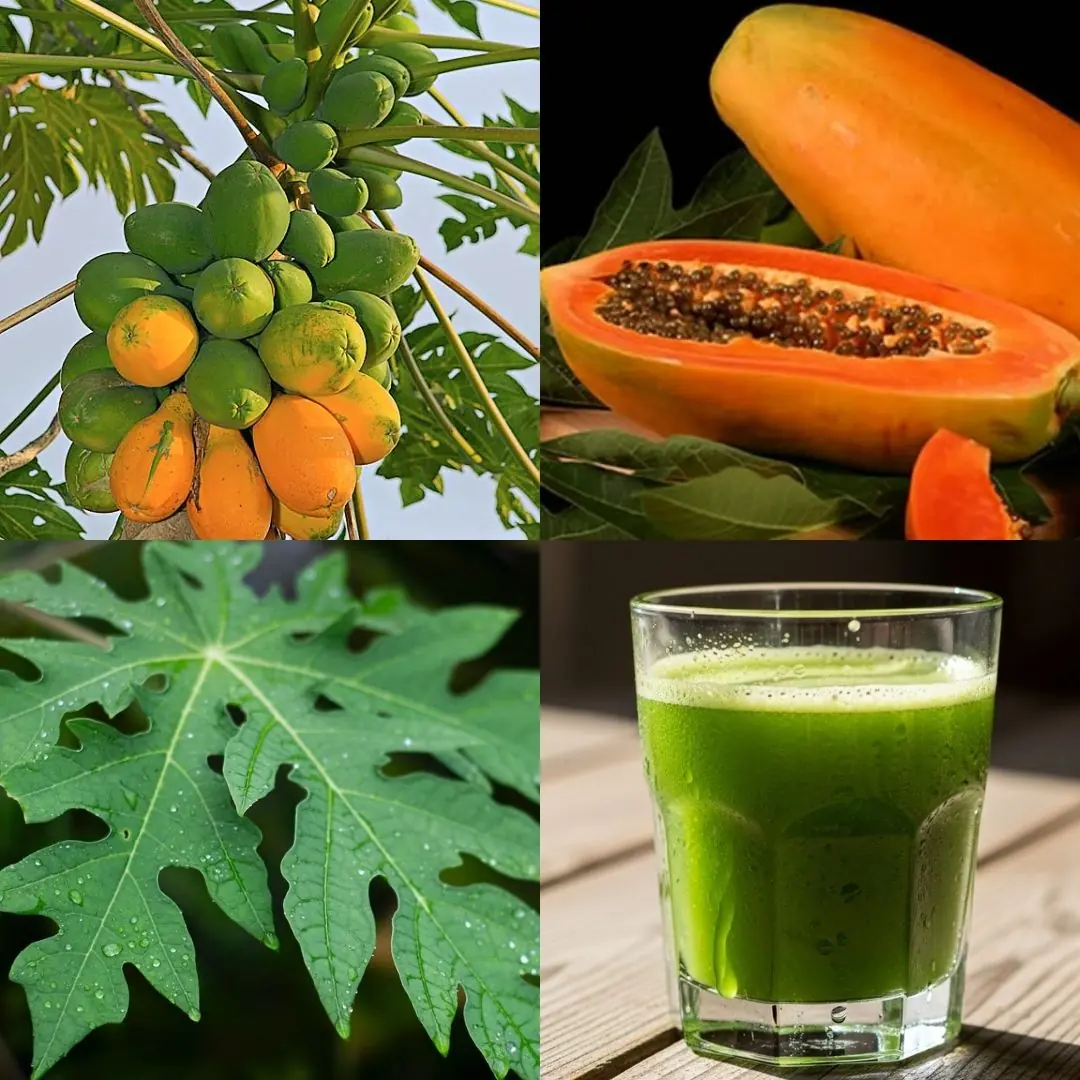
🌿 The Hidden Power of Papaya Leaves: Nature’s Unseen Healer
News Post

5 Countries Tighten Immigration Rules, Making It Tougher For Americans To Move Abroad

Gulf Stream On The Brink Of Collapse — Scientists Warn Of Global Catastrophe

Astonishing Cancer-Fighting Power of One Juice — Even Doctors Are Surprised

5 Types of Cancer with Over 90% Cure Rate: Early Signs Everyone Should Pay Attention To

Doctor's Advice: Whether You're Rich or Poor, Never Eat These 3 Foods for Breakfast – They Can Lead to Aggressive Cancer

Lemon and Charcoal: A Natural Skin Care Secret to Save Money and Glow

Golden Energy: How Turmeric, Black Pepper, and Almond Milk Support a Healthier You

French Farmer Discovers $4 Billion Gold Deposit, But Legal Hurdles Prevent Him From Profiting

Inside The Global Seed Vault: Earth’s ‘Safest Place’ Only Opens Six Times A Year

Chilling Final Words Of Air India Pilot Moments Before Tragic Crash That Killed 265 Uncovered

Scientists Use CRISPR to Eliminate HIV from Human Immune Cells

Eat These 9 Fruits Daily to Brighten Your Vision & Prevent Cataracts Naturally (Science-Backed)
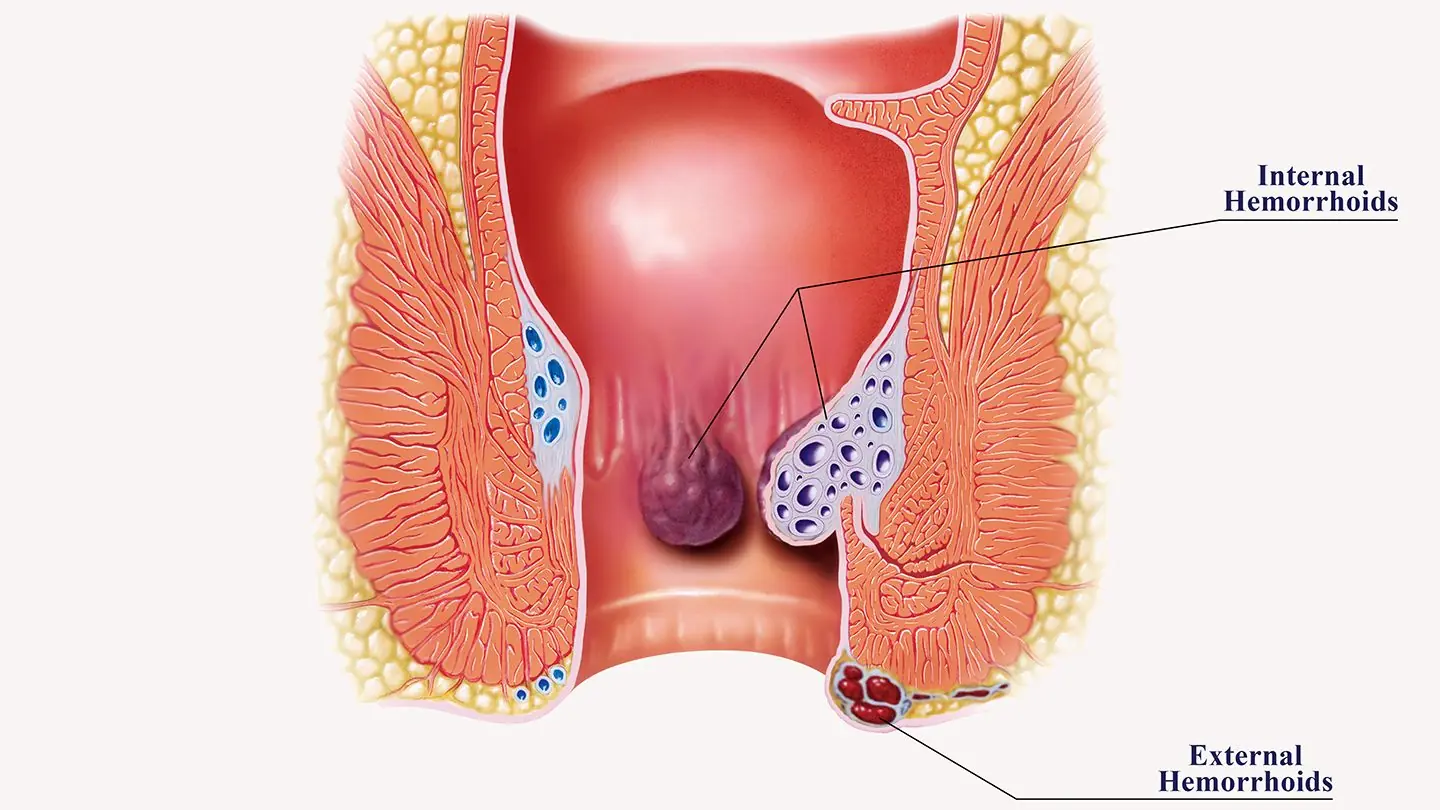
Hemorrhoids: Fast, Effective, Science-Backed Ways to Find Relief

Ovarian Cancer: 8 Early Signs You Need to Know

It’s Not Just Tooth Decay: 2 Common Signs in Your Mouth That Are SOS Signals From Your Body — Don’t Ignore Them

3 Early Signs of Lung Cancer You Shouldn’t Ignore — It Could Become Life-Threatening

Is Cancer Hereditary? Useful Tips to Prevent Cancer from Developing

Garlic: The Tiny Clove with Mighty Wellness Powers You Need to Know
